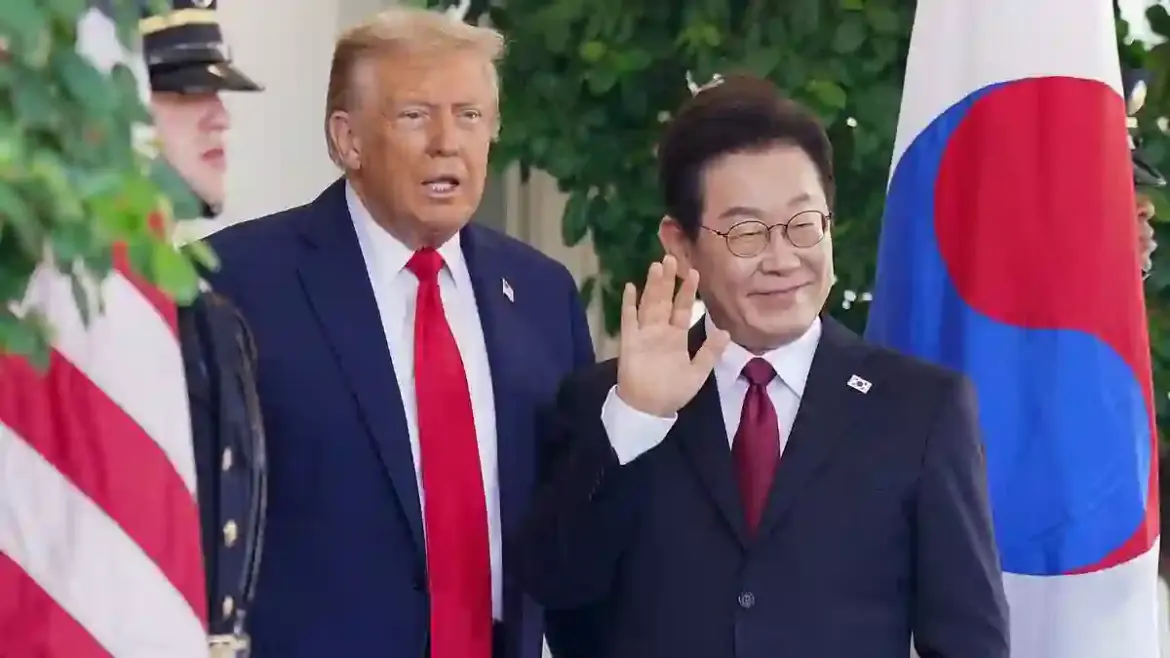What was meant to be one of Georgia’s most celebrated economic projects has suddenly turned into the center of a major international dispute.
A massive raid on Hyundai’s $7.6 billion plant in Georgia led to the detention of 475 workers, most of them South Korean nationals.
The arrests have rattled Seoul and sparked a diplomatic row between South Korea and the United States.
South Korea Raises Alarm
South Korea’s foreign minister, Cho Hyun, wasted no time in addressing the crisis.
Speaking at an emergency meeting, Cho revealed that around 300 of the detained workers were South Korean citizens.
With photos emerging of workers in chains, he voiced deep concern and pledged action.
“We feel a heavy sense of responsibility,” Cho declared, adding that if necessary, he would personally travel to Washington to press the U.S. administration for answers.
White House Smiles Now Overshadowed
The arrests came just two weeks after South Korean President Lee Jae Myung was seen warmly smiling alongside Donald Trump at the White House.
That moment of harmony has now been overshadowed by the images of detained workers, leaving Seoul scrambling to respond.
Calls for Fair Treatment
First Vice Foreign Minister Park Yoon-joo followed up with a call to U.S. Under Secretary of State Allison Hooker.
Park expressed regret over the crackdown and urged that South Korean companies investing in the U.S. and their workers must not face unfair treatment.
According to the ministry, Park asked Washington to ensure a “fair and swift resolution” and cautioned against undermining Korean business operations in America.
U.S. Defends the Crackdown
American officials, however, have framed the raid as a necessary enforcement action.
Steven Schrank, the Homeland Security Investigations special agent in charge in Georgia, said it was the largest single-site operation in the agency’s history.
He argued the move was about protecting American jobs, ensuring businesses compete fairly, and guarding workers from exploitation.
Officials confirmed that many detainees had either overstayed visas or entered the country illegally.
Political Undertones and Union Backlash
Not everyone is convinced the raid was just about law enforcement.
The Georgia AFL-CIO president, Yvonne Brooks, condemned the action as politically motivated.
She argued that targeting immigrant workers only spreads fear, disrupts families, and increases stress on those still employed at the plant.
“This raid is harassment,” she said bluntly.
A Blow to Georgia’s Economic Pride
The Hyundai plant, which began producing electric vehicles just last year, had been hailed as a landmark investment and one of Georgia’s most significant economic projects.
Now, its future is clouded by legal battles and political fallout.
Construction work has already ground to a halt since the raid, raising questions about whether the project can recover its momentum.
What Comes Next?
South Korea is weighing its next move, with Cho Hyun considering an urgent trip to Washington.
Meanwhile, the U.S. plans to transfer detainees to an ICE facility in Folkston, Georgia.
As both governments navigate the crisis, the raid has opened up a tense debate: how to balance immigration enforcement with international business ties, workers’ rights, and a multi-billion-dollar investment.
The story is far from over—and both sides know that what happens next could reshape not only the Hyundai project but also the future of U.S.–South Korea relations.
